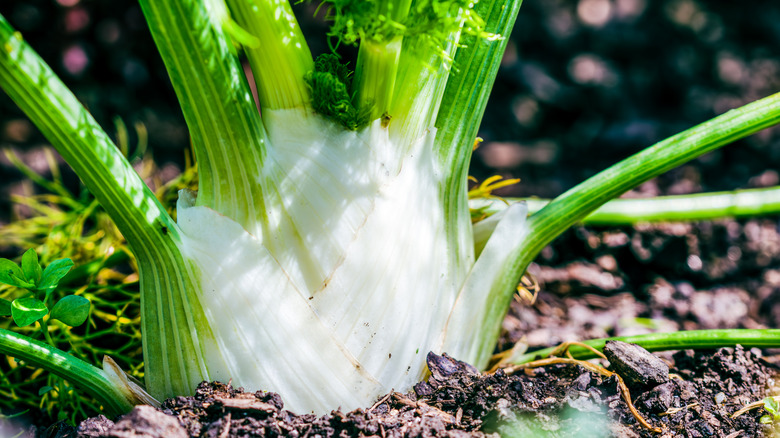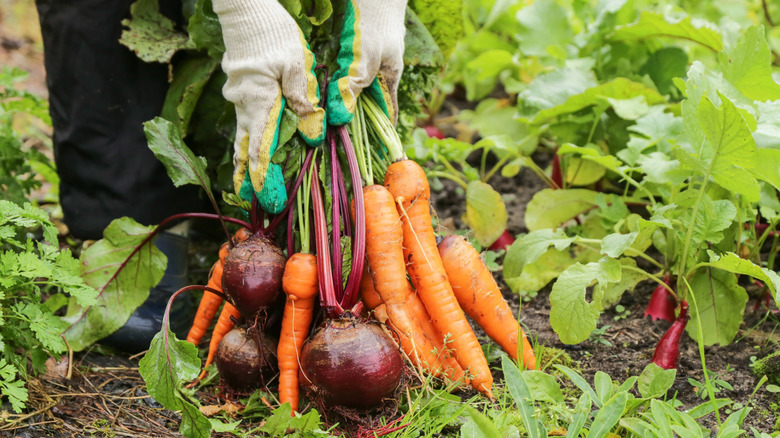You Better Think Twice Before Planting Carrots & Fennel Next To Each Other
Companion planting is a great way to build a resilient, biodiverse garden. Finding the right plants to put together is about a lot more than just sun and soil conditions. For instance, you should consider planting onions next to carrots to help with pest control or growing carrots with tomatoes in the garden to provide shade. Sometimes, however, it's just as important to know which plants to avoid planting next to one another. It's surprising what can go on under the soil and just how much impact plants can have on one another. So, if you have painstakingly planted carrots, thinned them, and are hoping for a healthy carrot harvest, you will want to keep fennel (Foeniculum vulgare) far away.
While fennel has plenty to recommend it as part of the garden, including extravagant foliage and playing host to anise swallowtail and black swallowtail caterpillars. The truth is, however, anethole, the chemical that gives fennel its distinct flavor, can inhibit the growth of many plants. With carrots, there is an added concern. Fennel often cross-pollinates with related plants, like carrots. They are both part of the Apiaceae family. Not only do they compete for nutrients, but when cross-pollination occurs, it can impact the flavor of both plants. If that's not enough reason to keep these plants apart, fennel also attracts aphids. So while you can use it to lure those pests away, you will want to keep it far from other plants that may be adversely affected.
Better companions for carrots
The truth is that fennel doesn't make a great companion for most common garden plants. You can try pairing it with peas (Pisum sativum L.), cucumbers (Cucumis sativus), lettuces, or sage (Salvia officinalis), but many gardeners choose to plant it in pots. This will keep anethole from impacting the growth of anything around it. Carrots, on the other hand, have plenty of options for good garden companions.
As we already mentioned, onions and tomatoes can make good neighbors for carrots. However, you can add peas, lettuces, and sage to that list. Chives (Allium schoenoprasum), leeks (Allium ampeloprasum), oregano (Origanum vulgare) will also work well with your carrots, while flowers like nasturtium (Tropaeolum majus) and marigolds (Tagetes) will help repel harmful insects. Yes, the list is long. However, one of the most beneficial companion plants for carrots is the radish. Radishes (Raphanus sativus) grow rapidly and break up the soil, making it easier for carrots to grow big and relatively straight. As an added bonus, ladybugs are drawn to radishes, so these beneficial insects can help with pest control.
So, when it comes to finding the right companions for your carrot patch, the biggest challenge may be narrowing it down. Consider which challenges your carrots might face. If you tend to have hard, compacted soil, radishes might help. If you've had aphid infestations, try planting nasturtium or marigolds nearby. Or, lure away aphids by keeping the potted fennel across the yard.

